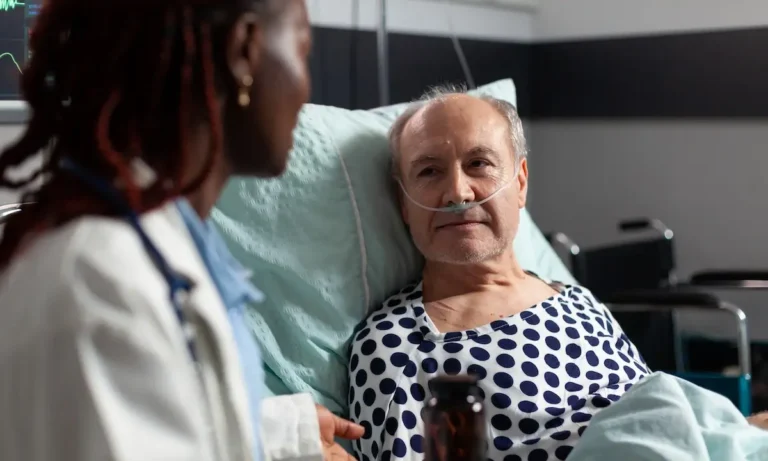Over the past decade, the United States has been facing a substantial drug crisis. Opioid addiction has played a huge part in this, with fentanyl emerging as one of the most dangerous widely used drugs. But what does fentanyl look like?
This potent synthetic opioid comes in various forms, including patches, pills, powder, and liquid. Medically, fentanyl is used to manage severe pain, but the rise in illicitly manufactured fentanyl has made the drug crisis exponentially worse. Knowing what to look for can help immensely in helping you recognize its use and prevent misuse.
Table of Contents
What Is Fentanyl?

Fentanyl is a synthetic opioid that was designed for medical use, mainly to treat extreme pain, for example, from cancer or surgery. It is 50-100 times stronger than morphine, so while it’s incredibly effective when used correctly, it’s also highly dangerous if misused.
Recently, fentanyl has heightened the opioid crisis, as it often gets mixed with other drugs like heroin or cocaine. Often, the user is completely unaware of this, increasing the risk of overdose because of fentanyl’s potency. Illegally produced fentanyl has become one of the leading causes of drug overdose deaths globally.
Fentanyl Patches
Fentanyl patches are little rectangular adhesive strips designed for pain relief. They’re applied directly to the skin, which allows the drug to absorb into your bloodstream gradually over a longer period. Medical professionals prescribe these patches for pain relief for chronic conditions like cancer or severe arthritis.
Fentanyl Pills
Fentanyl pills are small and diverse-looking—they can be manufactured in various shapes and colors. Medicinal pills are strictly regulated, but the ones produced illegally are often designed to mimic other pills, likely to avoid detection. Some common variants look like oxycodone or Percocet, an oxycodone-acetaminophen combination drug.
Fentanyl Powder

Fentanyl powder is an odorless, white substance and is used medically in controlled environments. The most common example of use is anesthesia in hospital settings. However, the illicit drug market uses powdered fentanyl in the production of other drugs. It gets mixed into other substances to increase their potency or is pressed into pills. Even a tiny amount of fentanyl powder can be lethal, making this an incredibly dangerous practice.
Fentanyl Liquid
Liquid fentanyl looks clear and odorless, typically used in IV treatments in hospitals, like anesthesia. In the illegal drug market, it’s sometimes used as a replacement for heroin, another highly potent and addictive drug, or it gets mixed into other substances. Because its appearance is so nondescript, it’s difficult to detect, making it particularly risky when sold or consumed outside of a medical setting.
How to Spot Fake Fentanyl
Counterfeit drugs, including fake fentanyl pills, are a rising problem. These pills are designed to imitate legitimate prescription medications in appearance. It makes them hard to distinguish from the real thing. Since they’re often made in unregulated labs using dangerous ingredients, the inconsistencies can have deadly outcomes.
If you’re trying to spot fake fentanyl, look for things like unusual sizes, colors, or markings. That being said, even experts can struggle to identify counterfeit pills without lab testing. The safest option is to stick to medications prescribed by a trusted healthcare provider and filled at a licensed pharmacy.
Fentanyl Addiction: What to Do If You Need Help

Fentanyl comes in many forms, from medical patches to illicit powder, and it’s at the center of a devastating drug crisis. The rise of fake pills and illegally made fentanyl has made this already dangerous drug even more deadly. If you or someone you care about is struggling with fentanyl addiction, getting professional help is critical.
Treatment centers offer safe, supportive environments to help people recover, with programs that include detox, therapy, and long-term support. Don’t wait until it’s too late—reach out to a trusted healthcare provider or addiction specialist today. There’s hope, and help is available.
Dr. Mitchell G. Cohen is a board-certified Internal Medicine specialist with over 34 years of experience in patient-centered healthcare. A graduate of Hahnemann University School of Medicine, Dr. Cohen completed his internship at the University Health Center of Pittsburgh, where he gained invaluable hands-on experience. He is also a certified addiction specialist, holding membership with the American Society of Addiction Medicine (ASAM).
Currently based in Nashua, NH, Dr. Cohen is affiliated with Saint Joseph Hospital, where he provides comprehensive care focusing on both internal medicine and addiction treatment. His expertise includes prevention, diagnosis, and management of adult diseases, as well as specialized care for individuals facing substance use disorders.
Dr. Cohen is committed to fostering open communication, ensuring his patients are fully informed and empowered to make confident decisions about their health and treatment options.

MD Mitchell Grant Cohen
Dr. Mitchell G. Cohen is a board-certified Internal Medicine specialist with over 34 years of experience in patient-centered healthcare. A graduate of Hahnemann University School of Medicine, Dr. Cohen completed his internship at the University Health Center of Pittsburgh, where he gained invaluable hands-on experience. He is also a certified addiction specialist, holding membership with the American Society of Addiction Medicine (ASAM).
Currently based in Nashua, NH, Dr. Cohen is affiliated with Saint Joseph Hospital, where he provides comprehensive care focusing on both internal medicine and addiction treatment. His expertise includes prevention, diagnosis, and management of adult diseases, as well as specialized care for individuals facing substance use disorders.
Dr. Cohen is committed to fostering open communication, ensuring his patients are fully informed and empowered to make confident decisions about their health and treatment options.
- MD Mitchell Grant Cohen
- MD Mitchell Grant Cohen
- MD Mitchell Grant Cohen
- MD Mitchell Grant Cohen
- MD Mitchell Grant Cohen
- MD Mitchell Grant Cohen
- MD Mitchell Grant Cohen
- MD Mitchell Grant Cohen
- MD Mitchell Grant Cohen
- MD Mitchell Grant Cohen
- MD Mitchell Grant Cohen
- MD Mitchell Grant Cohen
- MD Mitchell Grant Cohen
- MD Mitchell Grant Cohen
- MD Mitchell Grant Cohen
- MD Mitchell Grant Cohen
- MD Mitchell Grant Cohen
- MD Mitchell Grant Cohen
- MD Mitchell Grant Cohen
- MD Mitchell Grant Cohen
- MD Mitchell Grant Cohen
- MD Mitchell Grant Cohen
- MD Mitchell Grant Cohen
- MD Mitchell Grant Cohen
- MD Mitchell Grant Cohen
- MD Mitchell Grant Cohen
- MD Mitchell Grant Cohen
- MD Mitchell Grant Cohen
- MD Mitchell Grant Cohen
- MD Mitchell Grant Cohen
- MD Mitchell Grant Cohen
- MD Mitchell Grant Cohen
- MD Mitchell Grant Cohen
- MD Mitchell Grant Cohen
- MD Mitchell Grant Cohen
- MD Mitchell Grant Cohen
- MD Mitchell Grant Cohen
- MD Mitchell Grant Cohen
- MD Mitchell Grant Cohen
- MD Mitchell Grant Cohen
- MD Mitchell Grant Cohen
- MD Mitchell Grant Cohen
- MD Mitchell Grant Cohen
- MD Mitchell Grant Cohen
- MD Mitchell Grant Cohen
- MD Mitchell Grant Cohen
- MD Mitchell Grant Cohen
- MD Mitchell Grant Cohen
- MD Mitchell Grant Cohen
- MD Mitchell Grant Cohen
- MD Mitchell Grant Cohen
- MD Mitchell Grant Cohen
- MD Mitchell Grant Cohen
- MD Mitchell Grant Cohen
- MD Mitchell Grant Cohen
- MD Mitchell Grant Cohen
- MD Mitchell Grant Cohen
- MD Mitchell Grant Cohen
- MD Mitchell Grant Cohen
- MD Mitchell Grant Cohen
- MD Mitchell Grant Cohen
- MD Mitchell Grant Cohen
- MD Mitchell Grant Cohen
- MD Mitchell Grant Cohen
- MD Mitchell Grant Cohen
- MD Mitchell Grant Cohen
- MD Mitchell Grant Cohen
- MD Mitchell Grant Cohen
- MD Mitchell Grant Cohen
- MD Mitchell Grant Cohen
- MD Mitchell Grant Cohen
- MD Mitchell Grant Cohen
- MD Mitchell Grant Cohen
- MD Mitchell Grant Cohen
- MD Mitchell Grant Cohen
- MD Mitchell Grant Cohen
- MD Mitchell Grant Cohen
- MD Mitchell Grant Cohen
- MD Mitchell Grant Cohen







